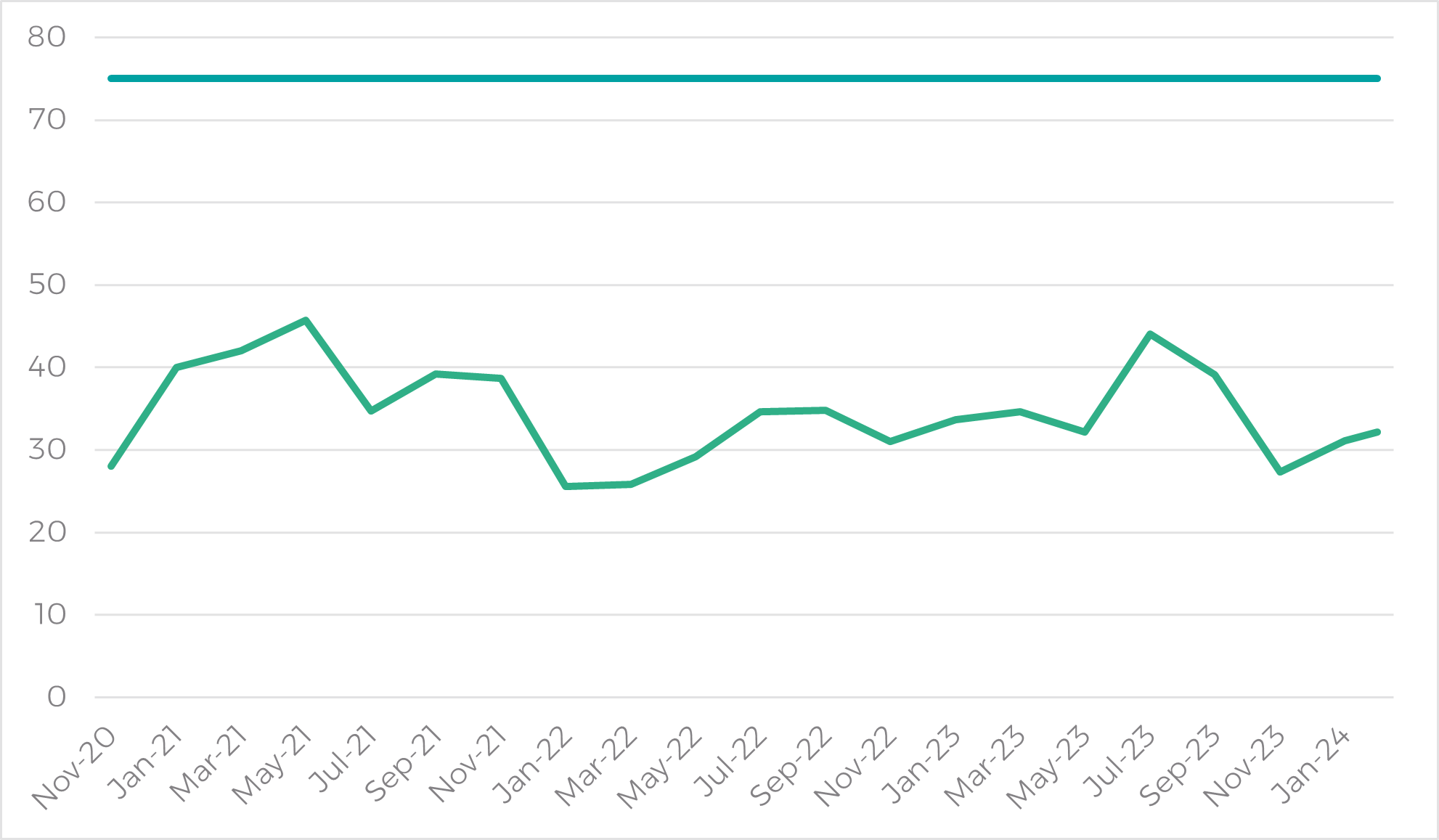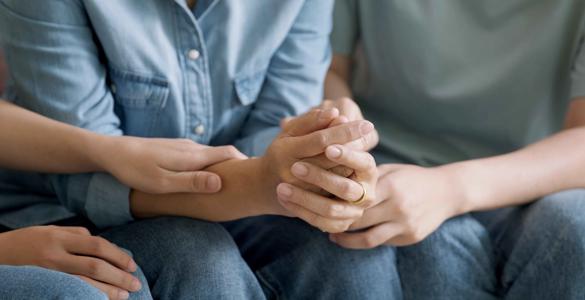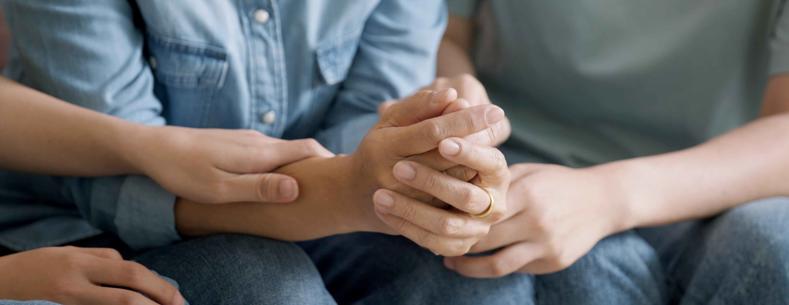I want to start by apologising to you on behalf of the NHS for where we got your care wrong and where we let you down.
(Eluned Morgan MS, Cabinet Secretary for Health and Social Services)
A Plenary debate to discuss the Senedd’s Health and Social Care Committee’s report ‘Unheard: Women’s journey through gynaecological cancer’, shed light on the struggles faced by some women with a gynaecological cancer, where their voices were unheard and their concerns brushed aside.
The Cabinet Secretary for Health, Eluned Morgan MS began her contribution with an apology to the women who’d been let down by the NHS. She acknowledged that “despite people’s hard work and dedication, sometimes things go wrong”.
While the Cabinet Secretary’s apology marked a moment of acknowledgement, some Members highlighted that the experiences of the women cited in the Committee’s report reflect a broader, systemic failure to prioritise women’s health needs.
Despite accepting the majority of the report’s recommendations, the Cabinet Secretary’s response left some Members and stakeholders (including Tenovus Cancer Care, Marie Curie, and the British Gynaecological Cancer Society) disheartened.
This article delves into the nuances of the debate, exploring the Cabinet Secretary’s response and any potential shifts in stance.
“We are listening to women”
The women who bravely shared their stories with the Committee conveyed how their health concerns were routinely missed by healthcare professionals. Despite their intuition that something was wrong with their bodies, they struggled to be heard. Their symptoms were frequently dismissed or downplayed, leaving them feeling marginalised and at times, even labelled as nuisances.
Despite assertions from the Cabinet Secretary that she is listening to women’s voices, referencing the Quality statement for women’s and girls’ health, and the ongoing development of a women’s health plan within the NHS, there remains a gap (i.e. that he forthcoming women’s health plan for Wales will not include any specific focus on the gynaecological cancers).
The Cabinet Secretary contends that the Welsh Government has already outlined its policies and actions pertaining to gynaecological cancer within the Quality Statement for Cancer and the Cancer Improvement Plan.
The Cabinet Secretary announced she’ll be holding a national summit in July 2024 to focus NHS attention on gynaecological services, including cancer. The initiative will surely be welcomed by stakeholders.
“Gynaecological cancer is a priority”
The Cabinet Secretary emphasised in the debate that improving cancer care remains a top priority for the NHS in Wales. She acknowledged the pressing need to enhance cancer waiting times and ensure faster access to diagnosis and treatment. She accepts that the current performance falls short of expectations.
In April, only 32.3% of patient pathways met the Welsh Government’s targeted 62-day cancer threshold for gynaecological cancer (the target is for at least 75% of patients to start treatment within 62 days (without suspensions) of first being suspected of cancer).
Graph 1: The percentage of patient pathways waiting to start their first definitive treatment in the month within 62 days of first being suspected of cancer (target 75%)

Data Source: Stats Wales
The graph shows a clear underperformance in meeting the 62-day threshold for starting treatment for gynaecological cancer.
While the Cabinet Secretary has outlined broader initiatives aimed at enhancing cancer care, such as the establishment of rapid diagnostic centres and waiting time recovery programmes, there remains an absence of targeted measures addressing the unique challenges faced by women with gynaecological cancers.
The Cabinet Secretary previously announced a national recovery programme focused on three types of cancer, including gynaecological cancer, worth £2million.
However, questions regarding the allocation of funds within the £2million programme remain unanswered, including what proportion of the funding has been allocated to gynaecological cancers and how it’s been utilised.
Despite accepting 24 of the Committee’s recommendations either wholly or partially, the Cabinet Secretary's response doesn’t commit any additional funding or reallocating existing resources for this purpose.
“In no way I am dismissive”
In the opening remarks made by the Cabinet Secretary in response to the Committee’s report, she asserted that “the vast majority of those receiving cancer care for gynaecological cancer consistently report high levels of patient satisfaction with NHS services”. This is based on the findings of the latest Macmillan Wales Cancer Patient Experience Survey (conducted by IQVIA on behalf of the Wales Cancer Network and Macmillan Cancer Support).
A key finding from the survey is that 92% of people with cancer in Wales treated during the pandemic rated their overall care highly.
However, Claire O'Shea, a patient herself, highlighted, “As a patient, at no point have I been asked about my satisfaction levels with the services I have received”. Similarly, Sioned Cash, whose mother's testimony was pivotal to the inquiry, expressed that such a claim at the outset of the response sets a dismissive tone for the rest of the report.
Committee Member, Mabon ap Gwynfor MS, described the inquiry as ‘the most heart-rending and powerful and emotional inquiries,' and condemned the Welsh Government's response as “scandalous”. He went further to accuse the Welsh Government of contributing to 'medical gaslighting,' a term describing how individuals are made to doubt their own experiences or perceptions. He pointed out that by asserting that the majority are satisfied with the service, the Government compounds the distress of these women, “effectively gaslighting them twice over”.
Jenny Rathbone MS echoed these concerns, emphasising the urgent need to cultivate a culture of listening to women's voices and taking their concerns seriously within the healthcare system. She emphasised that while new services may not be immediately feasible given financial constraints, prioritising a culture of belief and responsiveness to women's health issues is “within our grasp” and essential for early detection and treatment of gynaecological cancers.
While the Cabinet Secretary's response acknowledges some concerns and the need for healthcare service improvements, it does not address all the specific questions and points raised. However, she insists that change is happening.

Claire's Campaign (Along with Tenovus Cancer Care, Claire O’Shea has launched Claire's Campaign to amplify the voices of women who have felt ignored by healthcare professionals).
|
Help and support Tenovus Cancer Care - If you’re worried or have questions about cancer, call the free Support Line on 0808 808 1010/ |
Article by Sarah Hatherley Senedd Research, Welsh Parliament






